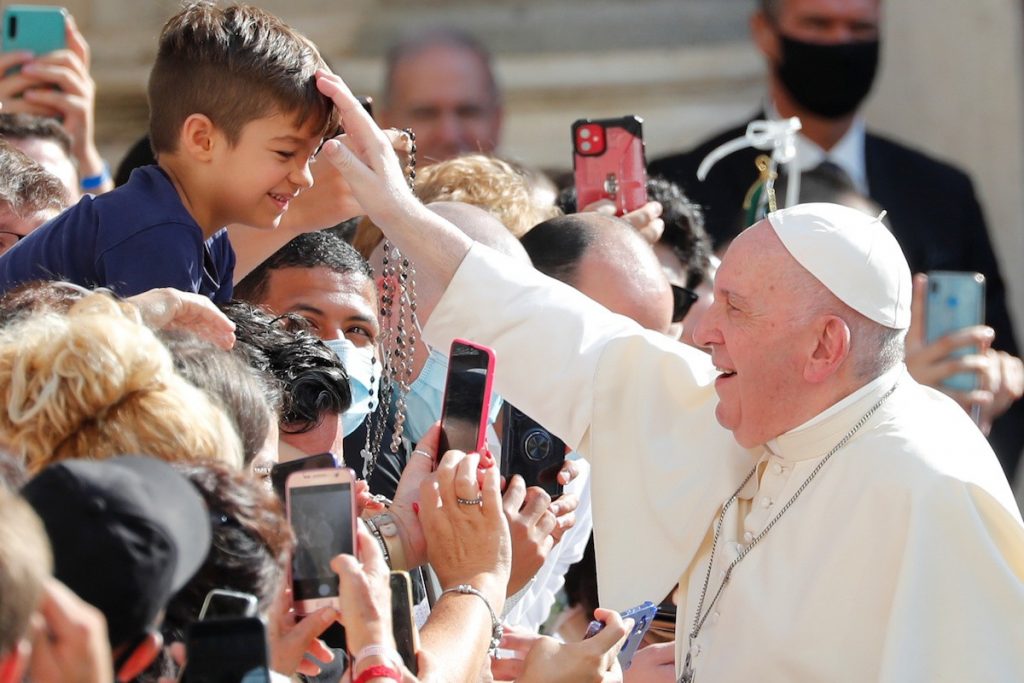
A recent online survey released by the Pew Research Center on June 25 shows that Pope Francis’ popularity remains “fairly stable” among both American Catholics and Americans in general.
More than six-in-ten US adults, or 63% of those surveyed, have a “very” or “mostly” favorable opinion of Pope Francis, according to the survey conducted in March.
Among US Catholics overall, 82% say they have a favorable opinion of the pope.
Claire Gecewicz, who focuses on religion research at Pew Research Center and who authored the report, explained that “views of Pope Francis have remained fairly stable among Catholic subgroups, too.”
“For example, Catholics who identify as Democrats or who lean toward that party continue to have a more positive opinion of Francis than their Republican counterparts, a partisan pattern that has held since 2018,” she said.
“In the latest survey, 90% of Catholic Democrats expressed a favorable opinion of the pope, compared with 73% of Catholic Republicans and GOP leaners,” she said.
The survey also found little difference in opinions of Pope Francis among Catholics who attend Mass regularly, and those who attend less often.
Among weekly Mass-goers, 84% said they have a very or mostly favorable opinion of Pope Francis, compared to 82% of Catholics who answered similarly and who attend Mass less often, or not at all.
Pope Francis’ overall popularity in the United States has rebounded since 2018, Pew said, when new revelations had surfaced regarding the sex abuse crisis in the US Church and questions were raised regarding Pope Francis’ handling of allegations against former cardinal Theodore McCarrick.
The survey showed that over a 13-month period from February 2020 to March 2021, a higher percentage of overall respondents gave favorable ratings to Pope Francis than in January 2020.
Fewer people declined to answer the question on favorability. Pew said that the disparity in figures could be related to the survey being conducted by phone in January 2020, while the survey over the 13-month period in 2020 and 2021 was conducted online.
“Online and phone surveys sometimes produce disparate results, a polling phenomenon called a mode effect,” Pew noted, adding that “online polls tend to result in fewer respondents declining to answer the question if there are fewer opportunities to express ‘no opinion.’”
Source: Licas Philippines
0 Comments